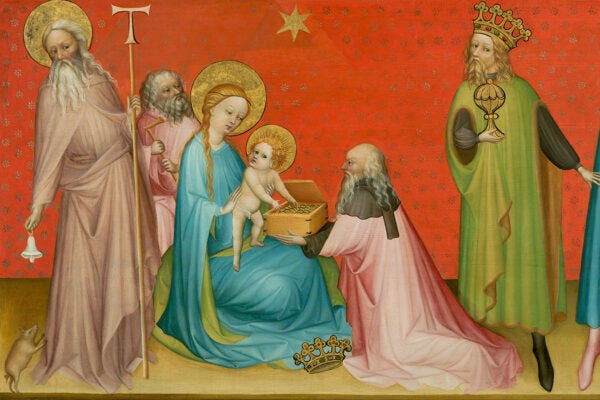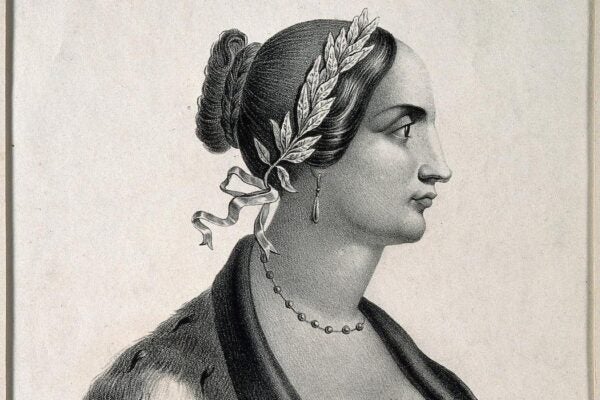Crucial Building Blocks of Life on Earth Can More Easily Form in Outer Space
A special group of molecules, known as peptides, can form more easily under the conditions of space than those found on Earth.
How Astronomers Write History
Scientists’ approach to dating past eclipses changed when they stopped treating classical texts as authoritative records.
Bridging The Gap of War: Einstein’s Eclipse
Astronomer Arthur S. Eddington argued that astronomy should be above politics, even when politics leads to world war.
Reading “The Book of Nature”
Beginning in the Middle Ages, the natural world was viewed as a Christian parable, helping humans to give divine meaning to plants, animals, and the heavens.
Human Remains and Museums: A Reading List
Questions over their value for research conflict with the ethics of possessing the dead, especially when presenting human remains in the setting of a museum.
Explaining GRB 221009A, the Greatest Cosmic Explosion Humanity Has Ever Seen
The brightest gamma-ray burst ever observed, GRB 221009A behaved in unexpected ways that might help us understand how they occur.
The Invention of the Gifted Child
The National Defense Education Act of 1958 meshed with white anxiety about the desegregation of schools.
The Carrington Event of 1859 Disrupted Telegraph Lines. A “Miyake Event” Would Be Far Worse
We don't know what causes Miyake events, but these great surges of energy can help us understand the past—while posing a threat to our future.
Laura Bassi, Enlightenment Scientist
The Italian physicist and philosopher was the first woman to earn a doctorate in science and the first salaried female professor at a university.









